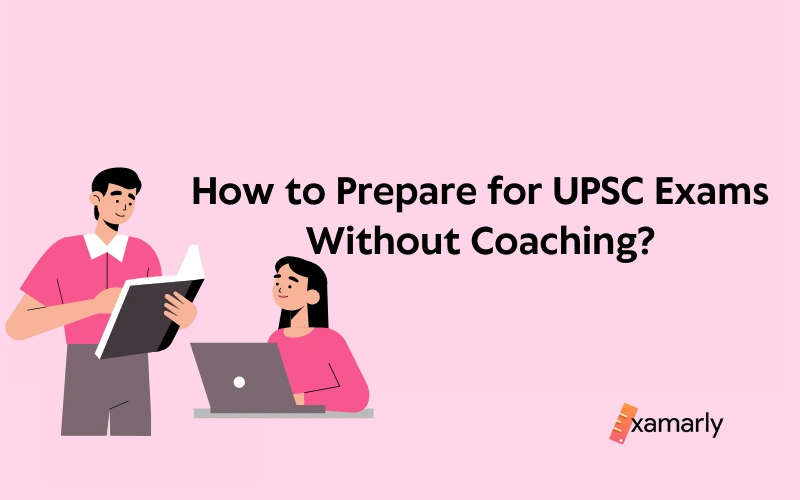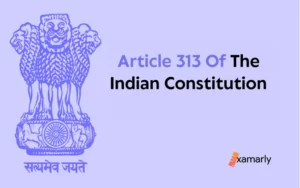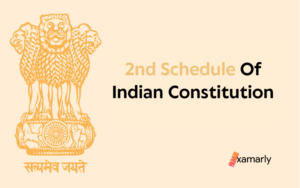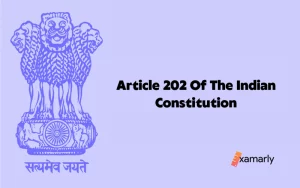Are you wondering how to prepare for UPSC exams without coaching? UPSC is one of the most popular and prestigious exams opted for by many students. The UPSC selection process is divided into three-level groups which are the prelims exam, mains exam, and interviews.
To appear at the next level of UPSC, an inspiring candidate has to clear the milestone.
Every Aspiring candidate of UPSC cannot opt for coaching classes as coaching classes are generally expensive or are priced on a higher scale.
Though coaching is a common path of preparation for most candidates, preparing for UPSC without coaching can be a daunting task. Let us look into the comprehensive guide to understand how to prepare effectively without coaching.
- UPSC Exam Pattern – What Do You Need to Know
- Problems Faced By UPSC Aspirants During the Examination
- How to Prepare for UPSC Exams Without Coaching – 5 Ways
- 1. Follow a Robust Study Plan for UPSC Civil Services Examination
- 2. Concentrate on All Subjects Equally in Civil Services Examination
- 3. Prioritize Scoring Subject for UPSC Mains Exam
- 4. Practice on the Nose and Prepare for a Strong Foundation
- 5. Read Newspapers Regularly
- Extra Tips to Boost Your Performance
- Is It Possible to Clear the UPSC Exam Without Classes?
- Conclusion
- Frequently Asked Questions
- Is it possible to crack UPSC exams without coaching?
- What are the best self-study resources for UPSC exams?
- What is the best study schedule for self-preparation for UPSC exams?
- What is the role of previous years' question papers in self-study for UPSC exams?
- How to maintain motivation and focus during self-study for UPSC exams?
- What is the importance of mock tests in self-study for UPSC exams?
- What is the role of reading newspapers in self-study for UPSC exams?
UPSC Exam Pattern – What Do You Need to Know
UPSC (Union Public Service Commission) Civil Services Examination (CSE) is a competitive examination in India conducted by the UPSC for recruitment to various Civil Services including Indian Administrative Service (IAS), Indian Foreign Service (IFS), Indian Police Service (IPS) and other Group A and Group B services.
The exam pattern of UPSC CSE is as follows:
- Preliminary Examination: This is the first stage of the UPSC CSE and consists of two papers, each of 200 marks, with a total of 400 marks. The papers are General Studies (GS) Paper I and General Studies (GS) Paper II (also known as the Civil Services Aptitude Test or CSAT).
- Mains Examination: This is the second stage of the UPSC CSE and is a written examination consisting of 9 papers of conventional essay type. The marks of the Mains Examination are taken into consideration while preparing the final merit list.
- Interview/Personality Test: This is the final stage of the UPSC CSE and carries 275 marks. The marks obtained in the Interview/Personality Test are added to the marks obtained in the Mains Examination to prepare the final merit list.
Note: The questions in the Preliminary Examination are objective type and the Mains Examination is subjective type.
Problems Faced By UPSC Aspirants During the Examination
There are several problems that students face when they do not know how to prepare for UPSC exams without coaching. Some of these problems are as follows:
- Unaware of the syllabus, topics, and exam pattern. Hence, the students end up studying topics or subjects that are not even asked in the main examination. In short, they do not know what to study and what not to study.
- Lack of direction leads to confusion on where to start from the vast syllabus.
- They don’t know about the methods of preparation?
- They waste time finding shortcuts in their preparation which leads to frustration and burnout.
- The students are unable to follow a proper study plan for each subject and hence do not have a clear idea about how much time is required for each subject.
- There are many books available in the market, but aspirants do not know which book is suitable for them.
- Lack of time management: Time management is the most important thing in preparation for the UPSC examination. If you fail to manage your time, then you will not be able to prepare well, and hence, your chances of selection will drop drastically. In other words, aspirants need to estimate how much time they require to complete their preparations so that they do not fall short at the last minute and compromise on quality as well.
- Difficulty in identifying one’s strengths and weaknesses.
- In addition to the above pain points, the evaluation of descriptive answers is something that no aspiring civil servant can do by himself.
Should UPSC aspirants go without coaching? the answer is still no. Here are some important points to remember before attempting UPSC IAS Exam without an exam. What are they?
How to Prepare for UPSC Exams Without Coaching – 5 Ways
If you want to clear UPSC with good scores without coaching then you have to make a strong mindset for doing self-study. Strong willpower, focus to follow a daily schedule, and determination to achieve the daily targets are the elements of self-study.
In short, proper planning, determination, and a set target will help you to stay focused while preparing for UPSC to clear UPSC on the first attempt.
So before jumping onto the preparation for UPSC, sketch out the strategy and plan out the daily schedule that works for you.
Preparation Tips are mentioned below on how to clear the UPSC exam without coaching:
1. Follow a Robust Study Plan for UPSC Civil Services Examination
A common question that generally passes across the aspirant’s mind is “how to make sure that significant progress is made daily in their preparation” or “how to track their preparation”.
The answer is simple!
If you allocate a certain amount of time in your daily schedule to cover each subject of the syllabus then you will be able to know whether you are making significant progress or not.
The following pointers listed below will help you to understand how study plans are beneficial:
- It will help you understand how much time or effort you are spending on a particular subject/topic of the UPSC syllabus and if there is a need for improvement or not.
- It helps the aspiring candidates to track: what they have covered till now, and what they are going to cover now and in upcoming days.
- Important for making fortuity as candidates may face issues bolt from the blue that probably could break their flow of UPSC preparation.
2. Concentrate on All Subjects Equally in Civil Services Examination
You should concentrate on all subjects equally as you don’t know which will come and which will not (or which topics covered more sections of the paper and which subject will cover the smallest part of the paper) due to the uncertain nature of UPSC. For example:
Polity: Being scoring in nature, try to understand the chapter instead of cramming and make notes which help you for revision. Questions in this section are more conceptual based and you can prepare Indian Polity from Laxmikanth.
Economics: For economics, candidates are required to have a basic understanding of the subject.
CSAT: Be consistent with practical and reasoning areas at regular intervals. Solve enough papers as this paper is qualifying in nature.
History: NCERT textbooks are helpful for the preparation of History. This will build your foundation strong and then switch to standard books for preparing art and culture, and ancient and modern History. If you are good at memorizing and can retain it in your memory for a long then this subject will be fruitful as this will fetch more marks.
Geography: For Geography, go through NCERT, to make your base strong and then consider standard books to prepare. Prepare it with the help of maps as map-based questions used to be common.
Current Affairs: Current affairs are important for UPSC as direct or indirect questions are used to come into UPSC. It is important to cover it daily from the newspaper to keep yourself updated about the current events happening across the world. Make your grip firm in this domain either by covering it via newspaper or monthly magazines.
Note: Keep your source limited for preparation as quality overshadows quantity.
3. Prioritize Scoring Subject for UPSC Mains Exam
Think: What is the need to prioritize the subject?
No doubt the Syllabus of UPSC is vast but have you ever wondered what makes a Syllabus of UPSC difficult to cover?
If you have not then let me tell you that it is the complexity of the topics covered in the syllabus that makes it even more difficult for you to cover.
To tackle the questions from a wide range of subjects/ topics candidates have to prioritize which subject will help them to get more marks.
In short, you have to figure out which subjects will fetch more marks with less effort but that doesn’t imply that you leave the one that needs more effort but also fetches more marks.
Hence to wrap up first figure out which subject fetches more marks and then sort them in decreasing order. Secondly, sort those subjects that fetch more marks in increasing order of effort to study.
4. Practice on the Nose and Prepare for a Strong Foundation
To prepare for the UPSC exam without coaching, it is important to study the subjects thoroughly and with full energy to master them. This will ensure clarity and confidence when answering exam questions.
To wrap up: Mock test series of previous year’s question papers or sample papers need to be practised frequently as it is a sure shortcut to scale your performance and be included in the routine of government exam aspirants.
5. Read Newspapers Regularly
To prepare for the UPSC exams, reading newspapers regularly is an important aspect to improve general awareness and current affairs. The Hindu is a widely recommended newspaper for UPSC preparation.
It is recommended to read the newspaper daily and focus on editorials and opinion pieces for in-depth analysis and perspectives on current events and issues. Taking notes and staying updated on current events related to the UPSC syllabus can also be beneficial.
To make the most of reading newspapers, it is important to selectively read and understand important news and articles. Improving vocabulary and writing skills can also be achieved through reading newspapers.
If you find it difficult to understand certain articles, seek guidance from seniors or peers who have cleared the UPSC exams. By following these tips, reading newspapers can be an effective tool for UPSC preparation.
Extra Tips to Boost Your Performance
- Before commencing UPSC Preparation, go through UPSC Syllabus carefully, which also contains optional paper, to understand what is there to cover and what you can skip while preparing.
- Next, go to previous years’ papers to understand the question paper, exam, and question pattern so that you can prepare for UPSC accordingly.
- First, cover NCERT for a strong base and then switch to standard books as a strong foundation is required to build the concepts strong.
- Read newspapers daily to cover current affairs.
- Never step back from practice and revision. As these are the important elements of UPSC Preparation, prepare separate notes for revision.
- For study material or notes, many internet resources are possible to download. Such online resources help to boost your preparation level and theoretical knowledge.
- Decide an optional subject that you can teach yourself while preparing for such a challenging exam.
Is It Possible to Clear the UPSC Exam Without Classes?
While some individuals may feel that coaching is not a necessity, others argue that it is an excellent way to learn. Coaching helps students review concepts and memorize information.
But, most coaching institutes fail to cover the entire syllabus in notes.
While these notes are valuable, they can’t replace standard books and study materials. Students are left with hardly any time for revision.
For instance, there is not a single direct and in-depth question on the UPSC or other prominent exams of the same nature.
Aspirants can also benefit from a detailed guidebook. Such a guidebook will teach UPSC aspirant’s the correct way to structure answers and essays also known as comprehension skills, writing skills, and communication skills.
Whether or not it is necessary to get coaching for UPSC depends on your level of knowledge and your time availability. If you can understand the subject matter completely from books, you can also avoid hiring a professional coach.
However, this method is not for everyone.
Coaching Institute’s Role in Exam Preparation
A coaching institute plays a supporting role in your preparation. Its experts can motivate you to study for the exam and develop cognitive skills. Ultimately, the coaching institute will create an environment where you can achieve your goals and in-depth knowledge.
If you want to become a coach, you must be systematic and disciplined to succeed. You must have a vision of your future and take action every day to reach it.
Although it is important to have strong self-motivation to study, it is also crucial to have others around you in your preparation program.
Moreover, the exam syllabus is complex and changes all the time. Aspirants need to keep up with changes, new updates, and best practices to score high on the UPSC Mains exam. They need to interact in groups with like-minded people.
The coaching environment provides a conducive environment where students can discuss their concerns with others.
Conclusion
You might feel stressed out when beginning without the help of coaching or any mentorship which is quite normal because UPSC is one of the toughest exams.
But don’t worry! If you plan to do self-study then go ahead with these preparation strategies to approach UPSC and leave no stone unturned, as many have cleared the UPSC exam without coaching.
With Examarly, you can clear the UPSC exam without coaching. If you are ever confused about which preparation strategy will work for you, what to study or what to skip, the platform will provide you with a blueprint on how to prepare for UPSC exams without coaching!
How? We will provide you with a customized micro plan that serves your requirement and will guide you at each step of your preparation.
Frequently Asked Questions
Is it possible to crack UPSC exams without coaching?
Yes, self-study can be sufficient to crack the UPSC exams, but it requires consistent hard work, determination, and effective study strategies.
What are the best self-study resources for UPSC exams?
NCERT books, The Hindu newspaper, Yojana and Kurukshetra magazines, and credible online resources such as IASbaba, ClearIAS, and Insights on India are some of the best self-study resources for UPSC exams.
What is the best study schedule for self-preparation for UPSC exams?
A well-structured study schedule that balances time for different subjects, revision, and mock tests is essential for self-preparation for UPSC exams. It is important to stick to the schedule and allocate enough time for self-study.
What is the role of previous years’ question papers in self-study for UPSC exams?
Solving previous years’ question papers is a crucial aspect of self-preparation for UPSC exams. It helps to familiarize with the exam pattern, understands the types of questions asked, and track the progress.
How to maintain motivation and focus during self-study for UPSC exams?
Setting achievable goals, taking regular breaks, having a support system, and staying positive can help maintain motivation and focus during self-study for UPSC exams.
What is the importance of mock tests in self-study for UPSC exams?
Regular mock tests are crucial for self-study for UPSC exams as they help to identify strengths and weaknesses, familiarize with the exam pattern, and build confidence.
What is the role of reading newspapers in self-study for UPSC exams?
Reading newspapers daily, especially The Hindu, is important for self-study for UPSC exams as it helps to keep track of current events, improves general awareness, and enhances vocabulary and writing skills.






